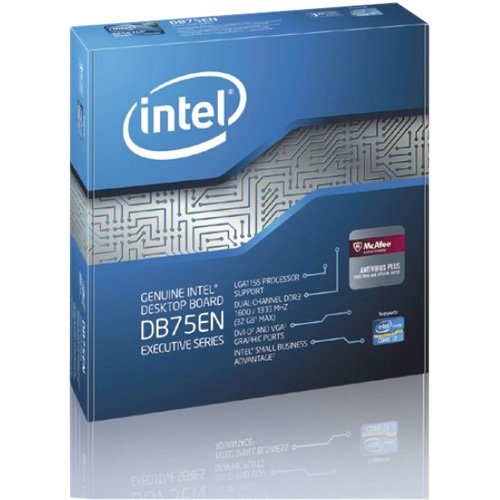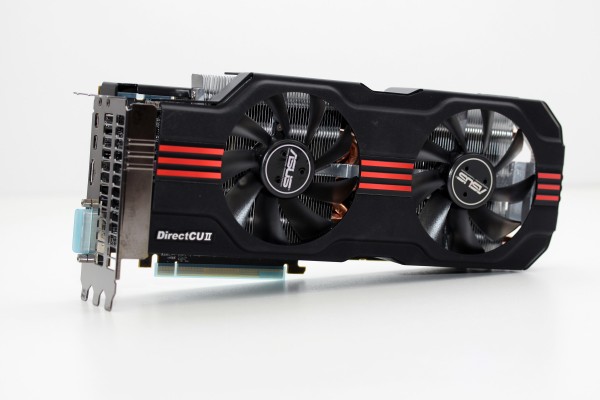Midrange System Buyer's Guide
by Zach Throckmorton on September 11, 2012 12:35 AM EST- Posted in
- Guides
- AMD
- Intel
- Ivy Bridge
- Radeon HD 7000
- NVIDIA
Developments in the Midrange Market
As with the budget segment of the DIY computer market, the midrange segment has seen many exciting new developments since the start of 2012. Perhaps the most noteworthy change is that Intel CPUs are now entirely dominant in systems that will set you back about $1,000. Ivy Bridge-based chips are now available at every price point from $100 up, leaving only the pure budget category untouched (at least until we see the Celeron IVB part). If you're interested in more information, we have a lot of information available on Ivy Bridge.
As with the latest CPUs, the newer B75 chipset has brought out of the box Ivy Bridge CPU support to less expensive motherboards, filling out the Panther Point platform. Ian thoroughly covered the Z77 chipset and compared it with H77. The B75 chipset is similar to Z77 and H77 with a few important differences for midrange buyers: two fewer USB 2.0 ports (eight vs. ten), one less SATA III port (one vs. two), and support for neither Intel RST (firmware RAID) nor SRT (SSD caching). PCIe 3.0 and 2.0 configurations are the same on B75 as they are on H77. The important point is that B75 enables less expensive motherboards that lack features that might not be important to midrange system builders, allowing money to spent on faster CPUs, GPUs, better SSDs, etc.

That said, AMD's impending launch of its Trinity APUs might very well put AMD back into the midrange market. AnandTech will be covering Trinity chips in more depth as the new APUs start hitting the mainstream desktop market over the next few months. While the parts are already shipping in OEM desktops, retail availability of the APUs has not yet occurred. For now, you can read more our current Trinity coverage.
As is often the case, the GPU market remains dynamic, with both AMD and NVIDIA wrestling for your money at multiple price points by introducing new cards and lowering prices on existing cards. We'll discuss the GPU market in more depth on the gaming rigs page.
Another development of note for midrange buyers is that prices on many of the best SSDs have been cut in half (or more!) compared to late 2011. This means that respectably-sized (i.e. 120/128GB and above) SSDs that perform very well and have great reputations for reliability are now comfortably within reach of even the lower end of the midrange budget. High capacity SSDs (i.e. those around 250GB) are also within midrange budgets; for many purposes, this means you can eschew a mechanical hard drive entirely—and either spend that money on better CPUs, GPUs, or just keep it in your wallet. Fortunately for consumers, prices on mechanical hard drives are declining in the wake of the Thailand floods, so the wallets of those with more demanding storage needs won't be hurting quite as badly as they were earlier in 2012.
Finally, case manufacturers have released many compelling choices for midrange system builders. Over the next few pages, we'll highlight new enclosures from Fractal Design, Corsair, Lian Li, NZXT, and others.
With that out of the way, let's get to the builds! We'll start with gaming machines on the next page.











95 Comments
View All Comments
bitoolean - Wednesday, September 12, 2012 - link
Oh, and I worked at a Foxconn factory recently, and I can't say they are very concerned with quality but neither do they ignore it.Impulses - Tuesday, September 11, 2012 - link
Do we really expect either of those to shake up these systems by the time your next guide is up? I'd imagine they'd be more relevant to lower end systems that actually depend on the iGPU... Or laptops.DanNeely - Tuesday, September 11, 2012 - link
Trinity is available for OEMs now; but is still MIA for building your own system. I suspect it will be only meaningful at the budget gaming level since the 7850 has nearly three times as many cores as the A10.Haswell is expected in 2013Q2; from there figure a few months to shake down across all pricepoints so it'll probably be similar to IVB in this one.
bradcollins - Tuesday, September 11, 2012 - link
Why suggest an M4 at $110, an 830 at $100 and an Intel 330 at $103 when they are all in the 120/128gb class?Couldn't a single SSD be settled on in the 120/128gb class?
ATC9001 - Tuesday, September 11, 2012 - link
I agree, and why not the Vertex 4 which appears to be the fastest and cheapest at 99 bucks right now at newegg?adadad - Tuesday, September 11, 2012 - link
Because every sane person will know to stay away from ocz unless his time isn't valuable.dishayu - Tuesday, September 11, 2012 - link
I would agree with you but i am convinced that Vertex 4 is different as it uses a Marvell conroller and they've had a pretty solid reputataion as far as reliability goes. So, although i wouldn't be too skeptical to recommend a Vertex 4 drive. I personally will still be conflicted if i want to buy one or not.piroroadkill - Tuesday, September 11, 2012 - link
I'd say controller regardless, they've had some dodgy practices in the past, and with the Samsung 830 at competitive prices, I find it impossible to recommend anything else.redchar - Tuesday, September 11, 2012 - link
regardless of controller or firmware what you should give ocz is time. time to prove to you that their non-sandforce drives aren't as unreliable as the rest.dgingeri - Tuesday, September 11, 2012 - link
After owning 7 OCZ SSDs going back to my 60GB Apex, and having 3 (two Vertex 4s and an Agility 4) in my current main system right now, and all of them still functional, I find your characterization of OCZ off base. They've been great to me. Even when my dual Vertex 2s quit responding because Windows 7's default sleep settings (what idiot in MS decided everyone wants their system to go to sleep?) they provided immediate support and helped me get them back up and running in a few hours, then directed me to the firmware update that would prevent it from happening again. OCZ drives have been the greatest in both performance and reliability in my experience.